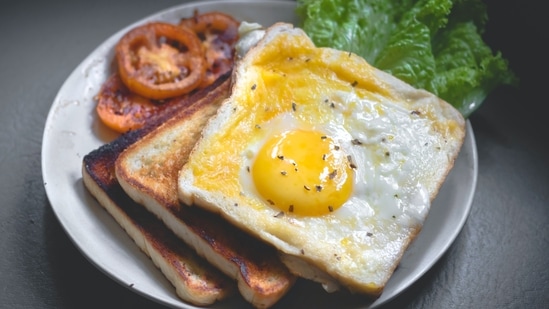Boosting Protein Intake for Weight Loss: A Strategic Guide
Whether you’re looking to lose weight or build muscle, protein is your best friend. However, many people find it challenging to increase their protein intake without adding unwanted calories. With so many food options available and the pressure of tracking both protein and calories, it’s easy to feel overwhelmed. Fortunately, increasing your protein intake doesn’t have to be complicated. With a few simple food swaps, mindful meal planning, and better meal timing, you can easily boost your protein intake while sticking to your weight loss goals.
Why is Protein Essential?
Proteins are made up of amino acids, which play numerous critical roles in the body—they help build and repair muscles, create enzymes and hormones, and support immune function. Unlike carbohydrates and fats, the body cannot store protein, so it’s vital to have a consistent intake from food sources to stay energized and healthy. Nutrition expert Mitushi Ajmera points out that protein consumption helps reduce hunger by lowering levels of the hunger hormone ghrelin, making it a useful ally in weight loss. Additionally, protein supports bone health, helping to reduce the risk of osteoporosis and maintain overall well-being.
Protein-Rich Foods to Meet Your Daily Needs
For Vegans
- Tofu
- Lentils
- Beans
- Tempeh
- Sprouts
- Millet-based meals
When combined strategically, these foods can provide all essential amino acids.
For Vegetarians
- All vegan options plus low-fat dairy products like paneer, yogurt, and milk.
- Whole grains like quinoa, brown rice, and oats.
- Nuts, seeds, and legumes for added nutrients.
For Non-Vegetarians
- All vegetarian options along with eggs and lean meats (chicken, turkey, lean cuts of beef and pork).
- Seafood varieties like salmon, tuna, and shrimp.
- Dairy products such as milk, cheese, and yogurt.
Animal proteins generally contain a complete profile of amino acids, so vegetarians and vegans should pay careful attention to combining different plant sources to ensure they meet their protein needs.
How to Increase Protein Intake Effectively for Weight Loss
1. Start Your Day with Protein
Kickstarting your day with a protein-rich breakfast can significantly boost your metabolism due to diet-induced thermogenesis (DIT). Many traditional breakfasts tend to be high in carbs; instead, consider including protein-focused options like eggs, Greek yogurt, or a protein shake if you work out early. This approach helps stabilize blood sugar levels, keeps you feeling full for longer, and curbs evening cravings.

2. Prioritize Protein in Every Meal
In many diets, carbs often dominate. Reverse that trend by increasing the protein content at each meal. Instead of relying heavily on rice or roti, elevate your servings of lentils, curds, paneer, or chicken. For example, pair traditional poha or upma with a generous side of Greek yogurt. This strategy enhances satiety, prevents overeating, and helps you consistently meet your protein goals.
3. Snack Smart
Typical packaged snacks can be deceptive—often high in carbohydrates and low in nutritional value. Swap these out for protein-dense options such as:
- Boiled eggs
- Roasted chana
- Edamame
- Cottage cheese cubes
- Unsweetened Greek yogurt
- A low-sugar protein bar
These high-protein snacks will not only keep you full but also help curb unnecessary munching between meals.
4. Use Protein Supplements if Needed
For those who are vegan or vegetarian, it might be challenging to meet daily protein requirements through food alone. In such cases, protein powders (whey, casein, or plant-based) can come to your rescue. They are versatile and can be added to smoothies, oatmeal, or pancake batter. However, it’s important to view supplements as a bridge rather than a replacement for whole meals.
5. Plan Ahead
Effective meal planning can make a world of difference. Preparing meals in advance allows you to ensure every dish includes a protein source, thereby steering clear of processed or low-protein options. Actions like boiling eggs the night before or marinating tofu or chicken upfront can make your diet more consistent and efficient.
Increasing protein intake for weight loss is not about boisterously piling on calories; it’s about making informed, strategic choices. By incorporating these tips into your daily routine—regardless of whether you’re vegan, vegetarian, or omnivorous—you can support fat loss, maintain muscle mass, reduce cravings, and keep your metabolism active.